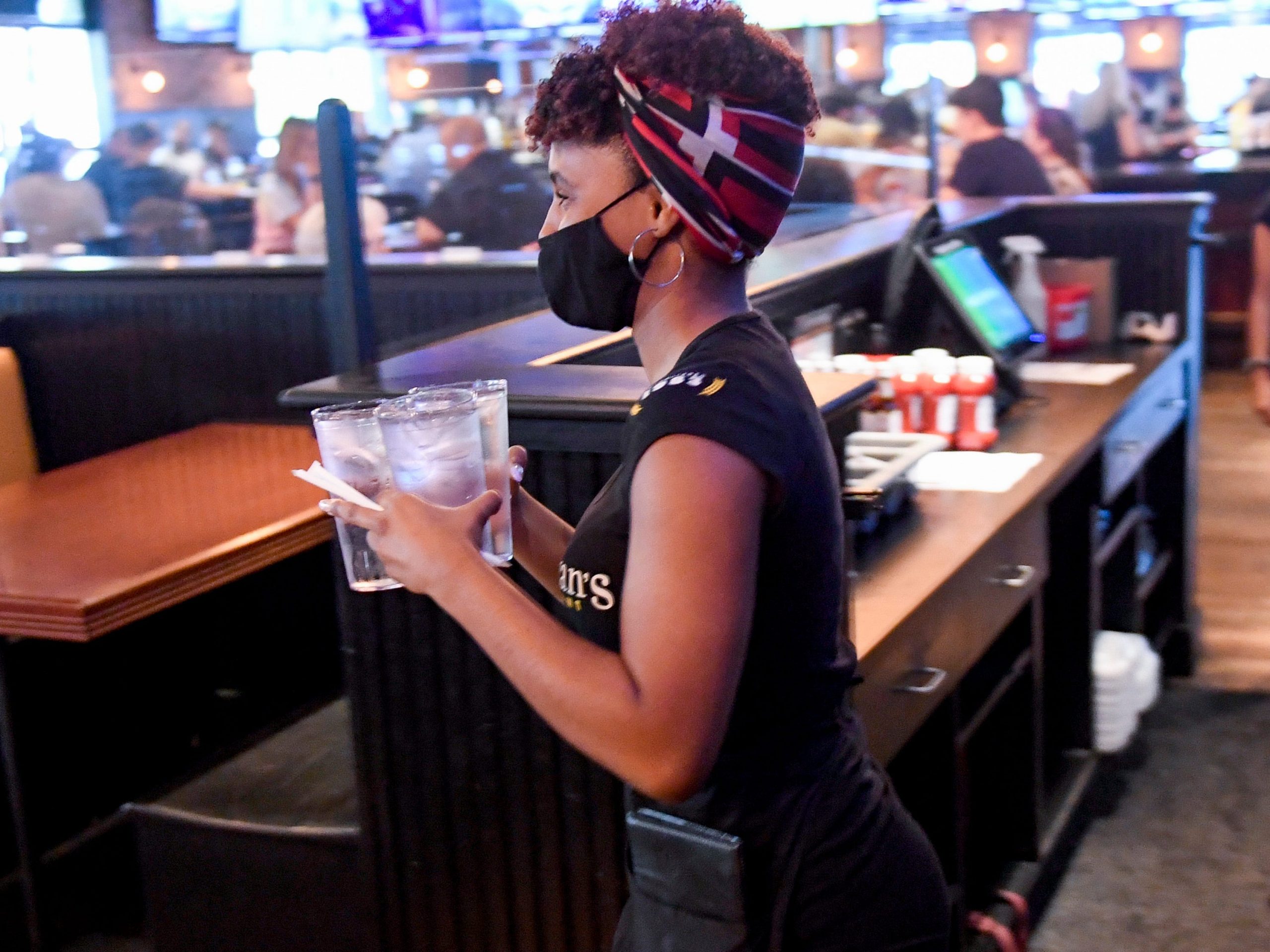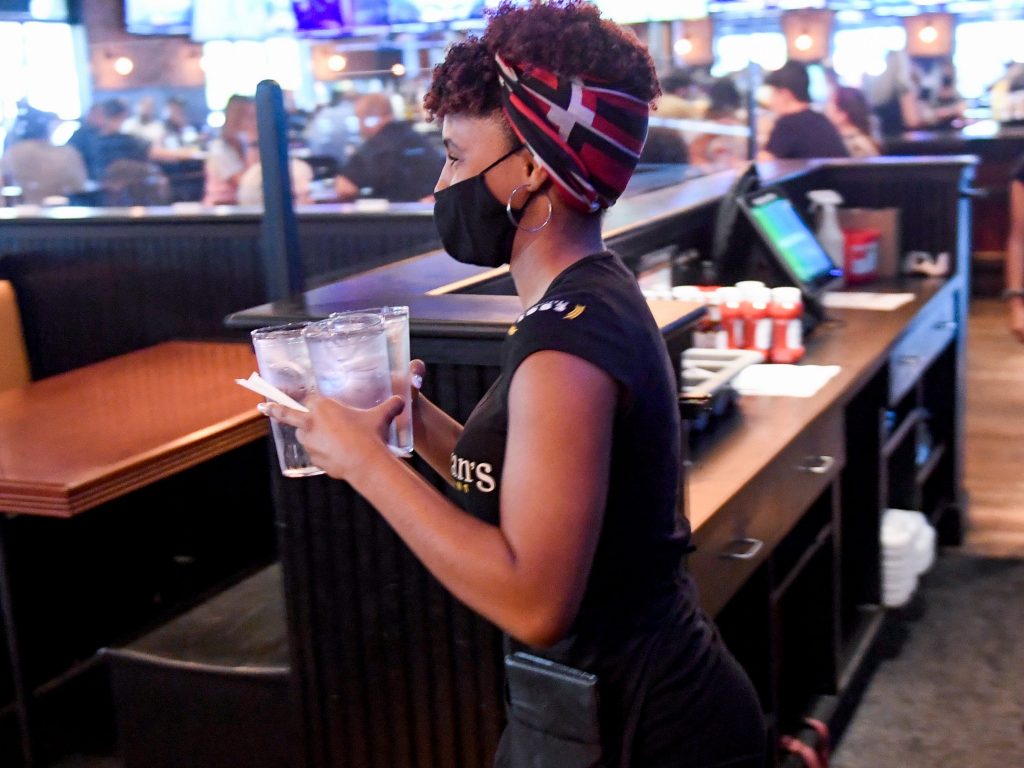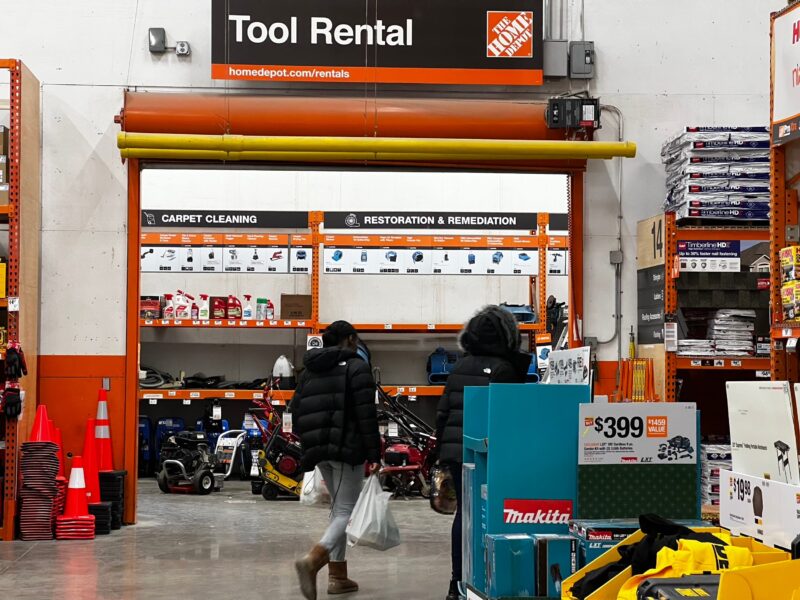
Ben Hasty/MediaNews Group/Reading Eagle via Getty Images
- Restaurants are struggling to find staff more than other small businesses, a poll found.
- 74% of independent restaurant owners say it's harder to find workers now than before the pandemic.
- Four in five small businesses told Alignable that their supply costs are higher, too.
- See more stories on Insider's business page.
The leisure hospitality industry appears to be on its way to recovery after adding 343,000 people payrolls in June, making up 40% of total US job gains – but independent restaurants say they still can't get enough staff.
Seventy-four percent of independent restaurant owners say it's harder to find employees than it was pre-pandemic, according to a survey conducted by small-business network Alignable in the first half of July.
As a result, restaurants top the list of small business sectors that are still in the midst of the labor shortage, according to Alignable.
The lack of available workers is having huge effects on some restaurants across the US. Some businesses have been forced to reduce their hours because they can't get enough staff, and half said that they struggled to pay rent in May.
After restaurants, the transport sector was the second-worst hit by the current labor shortage, according to Alignable's survey, with two-thirds of small business owners in the sector saying they're struggling to find staff. This was followed by the automotive industry at 63%, manufacturing at 62%, and the beauty sector at 59%.
Overall, half of the 5,911 small business owners that responded to Alignable's survey said it's more difficult to hire now than it was before the pandemic.
The labor shortage is forcing businesses to push up wages and roll out better perks to attract more workers. In Alignable's poll, 44% of small business owners said they were compensating their staff more than before the pandemic.
It's not just wages that are rising. Inflation is pushing up the price of goods, too. Four in five small businesses told Alignable that their supply and inventory costs had risen. Just over a quarter said that these costs were up by more than 25%.
"It's killing my profit and it's about ready to cause me to close my doors permanently," an unnamed small business owner in the construction industry told Alignable.
The owner of Brady's Restaurant in Maine told Insider that her food suppliers were hiking prices and substituting some orders for different brands or quantities. She said that she wasn't able to get pineapple juice for around three weeks, and that her supplier substituted an order for 8-ounce burger patties with 2-ounce ones. Because of the ingredient shortages, she'd been forced to cut the restaurant's opening hours, she said.
Businesses can get around the higher costs of goods and staff by putting their own prices up - but small businesses are reluctant to make big price changes, the survey shows. Forty-one percent of small businesses said they raised their prices during the pandemic, but only 7% had raised them by more than 25%.










